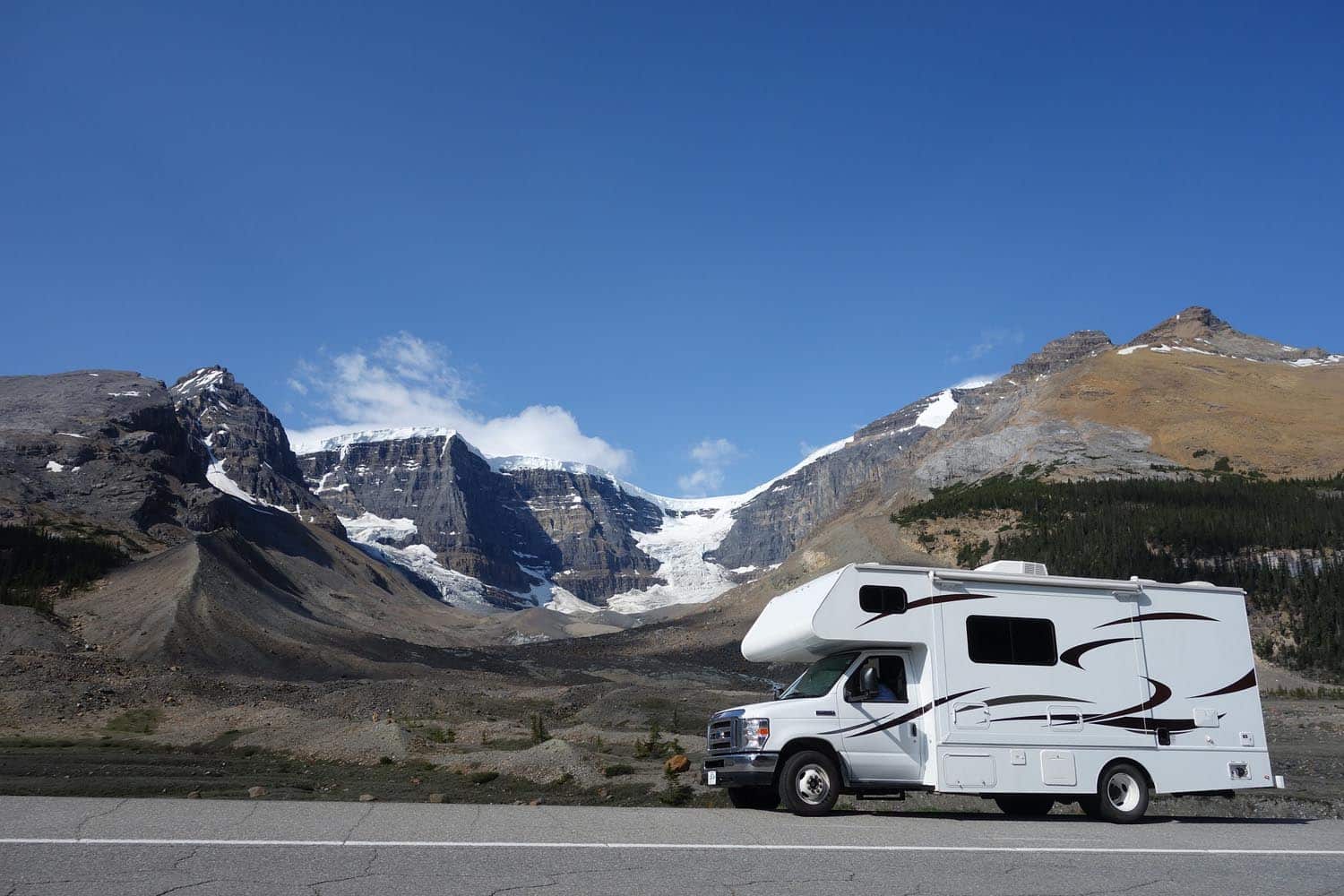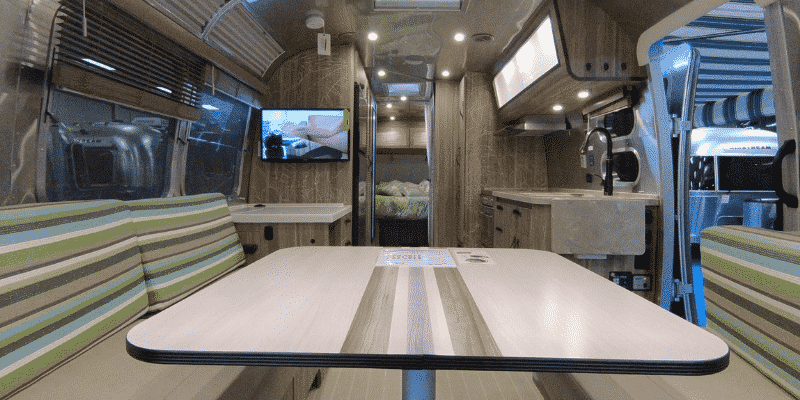It’s never too early to start planning for retirement. Not just from a financial standpoint, but also thinking about where you’d like to be, what you’d like to be doing, and what you’d like the golden years of your life to look like.
Purchasing the RV of your dreams might be at the top of that retirement wish list, but have you ever thought about going a step further and living in that RV full-time? More and more retirees are living in an RV full-time. Wondering if that’s the right idea for you?
Here are a few things to think about when deciding if retiring and living in your RV full-time is right for you.
Location

Maybe the biggest pro to living in your RV-fulltime during your retirement years is the fact that you have a ton of flexibility in choosing where you want to be.
Having a mobile home on wheels means your location can change whenever you want it to. If 70 degrees is your ideal temperature, you are able to chase the warm weather all year long. If you have grandchildren spread throughout the country, you are able to visit them as much as possible and bring your home with you.
Have you always wanted to see the Grand Canyon in the spring and fall foliage in New England? Well, you are able to get up and go wherever and whenever your heart desires. The possibilities of where to spend your retirement years are endless when you live in your RV full-time!
On the other side of things, figuring out where you’ll park your RV each night can be daunting and involves a lot of planning. While you are enjoying one location, you’ll always need to be thinking ahead to your next stop.
You’ll have to find RV parks or campgrounds that fit your needs and desired location, make reservations, route plans, etc. While this necessary part of full-time RV life may be exciting and fun for some, it can be a lot of work. To ease the headache of planning, doing extended stays at each location is an option.
Spend six months in Arizona and six months in Colorado then you only have to figure out two places to call home each year!
Costs
![]()
Making sure you live within your means is a huge part of enjoying your retirement. Nothing will take the joy out of these golden years quicker than having to worry about money. Living in your RV full-time can be a great way to cut living expenses.
If you’ve been paying a mortgage for the majority of your life, you’re finally able to say goodbye to that huge monthly expense! Saving on living costs such as a mortgage payment is a huge part of why more and more people are full-time RVing these days. Other costs you’re able to cut when living this lifestyle are utilities, home repair costs, property taxes, and unnecessary stuff.
If you have a 3,000 square foot home, chances are you spend money on filling it with “stuff”. When you downsize to an RV, you physically don’t have the room for all of the unnecessary things!
While living in an RV full-time will help cut living expenses, it definitely doesn’t mean it’s free. Chances are your dream RV isn’t cheap. If you plan on financing your home on wheels, your monthly payment should be less than a mortgage, but it is still a bill that needs to be budgeted for. On top of the initial cost of the RV, there are unexpected costs that arise from time to time.
It’s not uncommon for RV troubles to happen that require maintenance and repair. Depending on the severity of the issue, RV repair can be pricey. Need new landing gear for the fifth wheel? Parts and labor are going to set you back at least $500. How about a new transmission in your motorhome? That could be a huge expense if you don’t have good insurance!
Labor

Living in a traditional home is hard work. Between the yard work, repairs, and cleaning, there is always something that needs to be done. As you reach retirement years, these tasks become less enjoyable and more of a pain…literally.
The great thing about living in 300 square feet is there is much less home to care for. Cleaning the house takes a fraction of the time it used to and there is zero yard work to be done. Cutting out the time it takes to take care of a house means so much more time for relaxation and spending time doing activities you enjoy.
While there will be no yard that needs mowing, there is still work that’ll need to be done around the RV. If you plan on traveling often, the set up of your site at each new spot can be hard. You’ll have to worry about leveling the RV, hooking up the sewage hose, getting out the generator, setting up the satellite dish, unpacking any items that needed to be stowed during travel, etc.
There is a lot of bending over, kneeling down, and climbing that comes with RV life. It can be tough on the body! But, chances are, it’s a lot easier on the body than taking care of a house eight times the size.
There is so much to consider when deciding what your retirement years will look like. Regardless of the less glamours side of full-time RV life, there is no denying it is a desirable way to live. The opportunity to see this beautiful country, visit friends and family, and enjoy some downtime is priceless. But, before you make the leap, make sure you thoroughly think it through and make sure it’s the best decision for you.
Are you considering retiring and living in your RV full-time? Comment below with your questions or concerns and we will help you get some answers!









